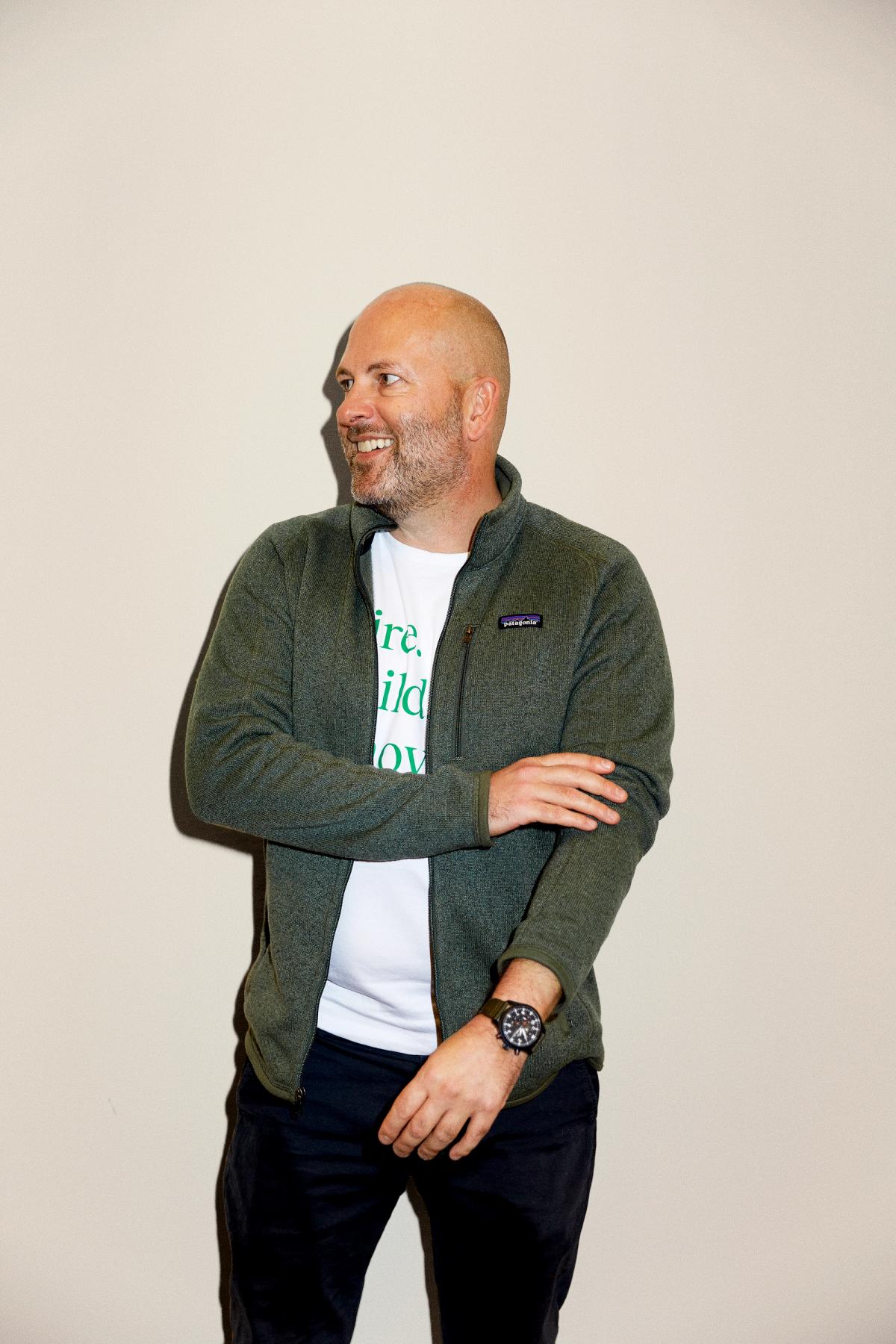May you live in interesting times - 2023 as a startup or scaleup

It seems like a bit of a blessing, seeing as the opposite of living in interesting times would be living in boring, dull, or downright dreary times, and who wants that, right?
“May you live in interesting times” is a supposedly traditional Chinese curse, which at first doesn’t seem like a curse but is often used when a situation is unpredictable and unexpected events might mean a change for the worse. Sequoia’s fund manager used the term when their largest investment dropped almost 92 %:
"You may be familiar with the apocryphal Chinese curse, 'May you live in interesting times.' Sequoia shareholders have lived through interesting times during the past year," the fund's manager, Ruane, Cunniff & Goldfarb, wrote in the investor note. "We can assure you that our goal is to be much less interesting in the months and years ahead." -USA Today
If you’re an investor and hear the expression “interesting”, you know it’s time to pay attention.
While being boring or dull might not be something we aim for, being predictable is a cornerstone of working with investors and other stakeholders. “Do What You Say & Say What You Do” is incredibly powerful as it inspires confidence and trust.
For most startups and scaleups, 2023 has been an interesting year (to say the least). Delivering on your promises in a normal market situation is difficult enough, but when there is a lack of predictability, as we’ve seen over the course of the year, it becomes even harder.
Some of the things that have been difficult this year are:
Funding Talent acquisition and organizational changes Lack of commercial traction Funding Venture capital deal value in Europe is down 49.1% in 2023 from the first nine months of 2022 (2023 total deal value €43.6 billion in the first nine months of the year), says AIN.capital. Q1 2023 was allegedly the quietest quarter in 6 years in terms of VC funding. It is what it is, but it doesn’t mean there’s no funding available, especially for early-stage startups. Emblem.vc raised 55m € for their first fund - Emblem I - beginning of this year, and just raised an additional 5m € for a total of 60m € so far, and has already secured the first 4 deals (disclaimer - I’m an LP at Emblem). Dreamcraft raised 55m € for their Fund II in September, and we’ve seen quite a few new startups raise this year, such as Marts.io raising 1.75m € in Pre-Seed funding: https://www.marts.io/news/marts-secures-1-75m-to-launch-the-os-for-it-management And Responsibly raising a Seed round of 2.4m €: https://tech.eu/2023/10/03/copenhagen-startup-responsibly-raises-24m-to-enhance-ai-driven-sustainability-tracking/
Not to mention Embla rasing a 10m € A round: https://sifted.eu/articles/weight-loss-drug-mania-reaches-europe-denmarks-embla-raises-10m It probably didn’t hurt their chances that they both have experienced founding teams, and work on relatable (and very real) problems, and that they have focussed on building small but highly efficient teams with senior talent. Investors might be looking for a bit more predictability in terms of outcomes this year, and while startups (and startup investments) are by definition unpredictable, we do see a trend: Emblem.vc is co-founded by Guillaume Durao (formerly Id Invest), who has an amazing track record across France and the Nordics. Dreamcraft is already doing well and has made some interesting investments, such as Humani. Marts has an experienced founder team (CEO and Co-founder Mads Viktor came from Peakon). So does Responsibly with CEO and Co-founder Thomas Andersson.
And Embla is solving one of the biggest problems of our time - lifestyle related diseases. So, while living in interesting times, we might just be able to make them a tiny bit less interesting by making the right choices. Talent acquisition and organizational changes Interestingly enough, recruitment isn’t easier in 2023 than it was in 2022. To some extent, it’s even more difficult. We see a very strong trend this year: Smaller but more senior teams - especially in engineering. 2022 was a year of mass hiring, and junior and mid-level developers were scooped up as soon as they made themselves available. Engineering teams ballooned in size, and there was a very strong focus on growth in terms of headcounts - and there was funding available to make it happen.
It’s not that startups didn’t hire good talent, but in some cases, they hired more talent than they needed and perhaps were too optimistic in terms of future growth. The trend we see this year is less hiring, as in fewer headcount, but with an emphasis on more senior talent. It’s quality over quantity and outcomes over output, and instead of hiring four junior/mid developers, we see most of the startups/scaleups we work with hire one or two Senior or Staff developers. While we have always hired strong talent for the clients we work with, in 2023, we have gone from hiring strong talent to hiring top 20 in Europe talent. It is a massive shift in the market and the benefits are clear: Even though the compensation per headcount is higher (sometimes a lot higher), the total compensation cost is lower with a smaller team. Quality and speed are higher, and there’s less management time needed. Each recruitment process might take a bit more time, but fewer people hired = less overall time spent. It’s a lot easier to focus on outcomes than output. While it is unpredictable to build a startup, a small and laser-focused team might make things a bit less interesting. Lack of commercial traction Around Q3 2022, many of the startups and scaleups we were working with experienced a shift in the mindset of their investors. While the beginning of 2022 was focused on hypergrowth and cash burn, investors were suddenly looking for (predictable) commercial outcomes and commercial traction. As engineering teams ballooned in size throughout 2021 and 2022, so did the commercial teams. And while a lot of senior talent was hired, there was a natural shift towards less senior talent as demand was high. A lot of SaaS startups and scaleups built large teams including SDR’s, with the expectation that those SDR’s would turn into successful Account Execs, who would, in turn, become Senior Account Execs, hence building a sustainable ecosystem. It’s always easy looking back, but it turned out that big commercial teams did not necessarily result in big commercial success. As a result, a lot of commercial organizations have been scaled down in 2023. The same logic applies to commercial teams as to engineering teams - smaller, more senior teams often result in more predictable outcomes and stronger commercial success. As a result of a more unpredictable market, many companies have also looked at their cost base and tried to reduce it either by scaling back investments or not renewing contracts, which have hit startups and scaleups hard. While it’s easy to buy a SaaS product and get started, it is unfortunately also quite easy to scale down or not renew the service when needed. We’ve also seen an unfortunate trend in 2023, where companies delay needed investments to protect their cash flow. While it’s smart business to do so, it has a tendency to accumulate - company A delays a purchase from company B, which in turn delays a purchase from company C, etc. It’s a bit of a dangerous trend as it makes your deal flow less predictable. Even if all the hard work has been done perfectly - perfect ICP, qualifying the lead, addressing objections, and following up like a madman - the deal gets delayed because their deals get delayed. Fortunately, at least from a European perspective, we see a market that is a lot more positive in Q4 than in Q1 2023. We see more investment deals, more people hired, and more deals getting closed. With the exception of war and violence, it seems that the world is again - for lack of a better word - becoming a bit less interesting.

Insight by Bjørn Andersen
Bjørn Andersen
CEO & Founder
CEO & Founder